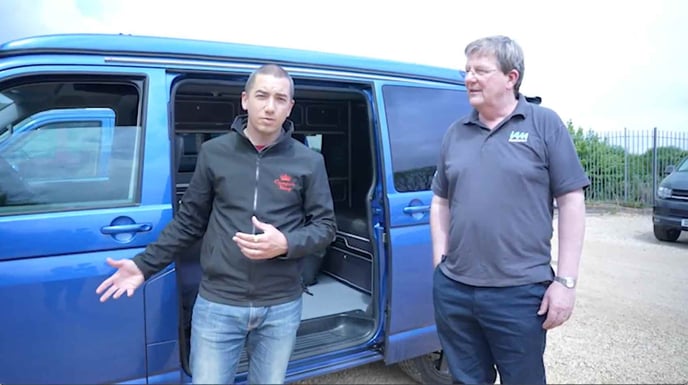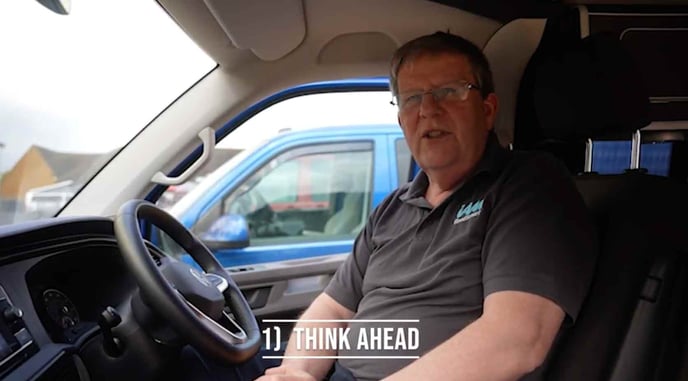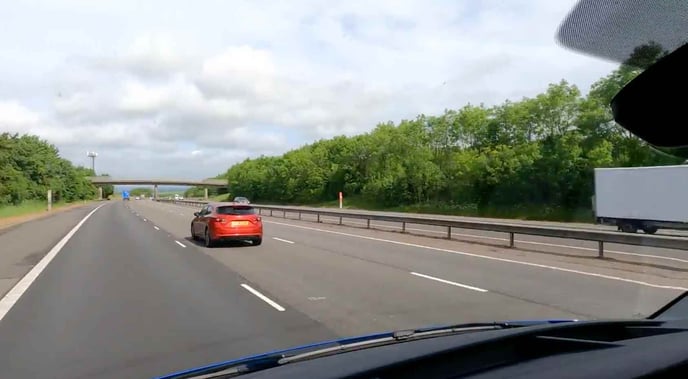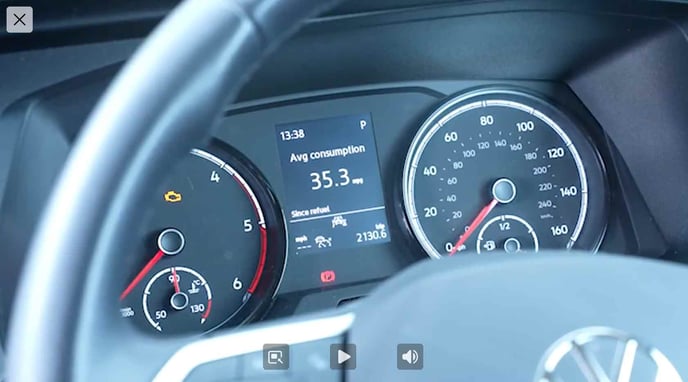How to save fuel and get the best MPG from your campervan
With fuel prices soaring, we took to the road with the Institute of Advanced Motorists to find out how to get the best fuel economy out of a campervan
The price of fuel is at an all-time high, and driving is proving an increasingly costly prospect, so what can you do to mitigate the impact of these rising prices on your pocket?
Thankfully there are many tips and techniques drivers can use to make their fuel go further.
We teamed up with the Stratford-upon-Avon and South Warwickshire Institute of Advanced Motorists to present the best ways to save money and get more miles per gallon from your fuel.
Ian Macafee, the group's Secretary, joined us on a driving exercise undertaken on a 44-mile route consisting of motorway, and urban and rural roads. We drove the route twice in the same vehicle, paying particular attention to fuel-saving techniques on the first run, then driving without using those techniques for the second. 
We picked a stretch of the M40 to run the van on, heading north from our base near Warmington, Warwickshire, to Junction 15 before heading west on the A46 towards Stratford-upon-Avon. In Stratford, we drove on several 30mph urban roads, skirting around the town centre before heading east to some more rural country lanes as we headed back to our starting point. The route we chose was just over an hour's driving, and although we couldn't control the precise traffic situation we'd encounter on each run, the two journeys were conducted in the same van, in the same weather conditions, with the same weight on board to ensure as accurate and realistic a result as possible.
Naturally, when you go camping you'll have to take additional gear with you, therefore adding weight. This of course will impact your overall economy, but if you can be stringent with the kit you pack, or slim down weight wherever possible, you'll help to improve your fuel efficiency massively.
Figures from the AA also show that more fuel is used at higher speeds, and our motorway drive illustrated this clearly, returning fuel economy of around 24mpg on both legs at 60mph.
The AA says 9% more fuel is used at 70mph than 60mph. This stretches to 15% more compared to 50mph, so there are big savings to be made. Ian gave us his top tips for saving fuel – actions you can take both in terms of vehicle maintenance and as a driver, in order to soften the impact of fuel price rises.

Ian's top tips for saving money and getting the best MPG:
1. Think ahead
You should aim to accelerate and decelerate as little as possible as doing so uses vast amounts of energy. Therefore, thinking ahead and managing your road position, especially as you approach roundabouts and junctions, for example, will make a vast difference to the economy you achieve.
Most drivers react to what is happening immediately in front of them, but by looking further ahead, you can anticipate situations that may affect your progress much sooner and adjust your driving to suit.
2. Don't use air conditioning
Air conditioning can account for as much as 10% of your overall economy, so if it can be avoided, it's best not to use it. It's far better to use the vehicle's fan or open a window to get some cooler air in.
3. Don't open windows above 50mph
Beware though, as above 50mph the opposite is true – it will be more efficient to use air conditioning than to open a window, as the drag has a profound effect on fuel economy. So if you absolutely need to cool yourself down in the cabin, at speeds of 50mph and above, it's actually better to use a little air con.
4. Regular servicing and looking after your vehicle
Looking after your vehicle will make a significant difference to your fuel economy. Regular maintenance such as ensuring the tyres are inflated to the correct pressure and keeping the engine oil and coolant topped up, will help you maximise MPG, while even keeping the vehicle clean will make a difference to the airflow over the vehicle's surface, reducing drag. Not only that, but a well-looked-after vehicle will also be much safer for you to drive.

So what were our results from the two routes?
On our first run, we were able to record an average economy of 35.3 miles to the gallon, but following the second run, this had dropped significantly to 31.8. If we analyse that closely and calculate the weighted average, our second run achieved economy of 28.3mpg over the 44-mile route, representing a drop in fuel economy of 7mpg or a huge 20% of our economy, and that's in just over an hour's driving. If you extrapolate these kinds of numbers out across a longer drive you start to realise that you could save approximately £25-£30 for every tank of fuel (at today's prices) you use in your campervan if driven the same way – a potentially huge amount of money effectively staying put in your pocket.

So in summary, employing the tips above in the right way could have a huge bearing on your fuel economy, and in turn that would save a small fortune at the fuel pump, something that we could all do with at this time of exceptional inflation.
With special thanks to the Institute of Advanced Motorists Stratford-upon-Avon and South Warwickshire.



